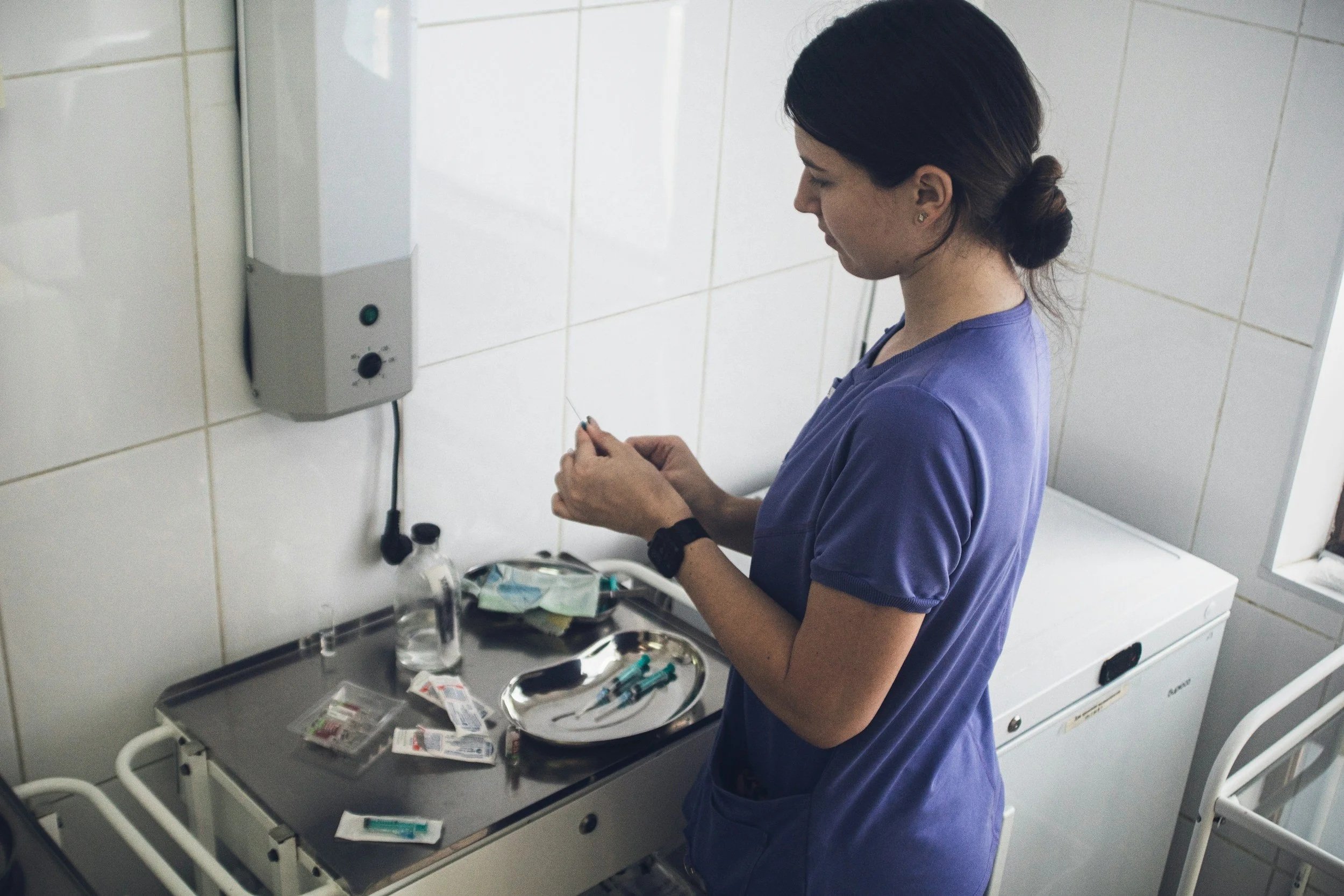If you’re considering donating your eggs, you may be looking to understand the benefits and potential risks involved. Here’s what you need to know.
The Benefits of Egg Donation
Egg donation is a true gift to many families. The CDC estimates that one-fifth of women encounter infertility every year, and egg donation can help many of them realize their dream of having a child.
Cofertility allows women the unique opportunity to keep half of their retrieved eggs and freeze them for themselves entirely for free when they donate the other half to a family that cannot otherwise conceive. (As a Split Member, Cofertility’s donors also have the added benefit of free health screenings and access to fertility experts to discuss their own reproductive plans.)
Overall Risk

According to a study published in Fertility and Sterility in 2017, the overall risk of complications from donating or freezing your eggs is low, with an overall complication rate of only 0.4% for more than 23,000 egg retrieval procedures done on women included in the study.
Prior to the egg donation process, a thorough screening process is undertaken to ensure the donor is physically and mentally fit to undergo the procedure. Women with pre-existing health conditions that put them at risk are unlikely to pass the initial screening process. For women deemed healthy and suitable for donation, the risks are mainly related to the egg production and egg retrieval phases.
Ovarian Hyperstimulation Syndrome (OHSS)
During the egg donation process, women are given hormonal medications to stimulate their ovaries to produce more eggs, which carries a risk of ovarian hyperstimulation syndrome (OHSS). Cases of OHSS are rare, occurring in less than 5% of women who use these medications. The symptoms are usually mild and include bloating, nausea, and general discomfort. OHSS cases that require medical attention occur in about 0.1% to 2% percent of women
Anesthesia
Another risk that should be considered is the use of anesthesia, which carries its own risks, such as nausea, vomiting, low blood pressure, and allergic reactions. However, major complications from anesthesia are rare, occurring at a rate of just 1.1 per million per year across all types of procedures.
Retrieval Complications
During the egg retrieval process, a fertility specialist will use a thin needle to aspirate eggs from the donor's ovaries, which carries a risk of bleeding, infection, or injury to nearby organs such as the bladder or bowels. However, according to the study, only 0.4% of women encountered complications during this part of the egg donation process, and just 0.29% of those women required surgery due to those complications.
Your Future Fertility
One of the most common concerns of potential donors is whether donating eggs will affect their future fertility. The answer is no. Donating eggs does not lower a woman's ovarian reserve or affect her chances of getting pregnant unassisted in the future.
Summary
The risks associated with egg donation are relatively low, and the rewards of helping a family grow can be powerful. Donors who are physically and mentally fit, and who have carefully considered their decision to donate their eggs, can find it to be a fulfilling experience that ultimately benefits everyone involved.

Meera Shah, MD, FACOG, is a double board certified OBGYN and reproductive endocrinology and fertility specialist at Nova IVF in Mountain View, California. She received her Bachelor's degree at UC-Berkeley and completed a post-baccalaureate research fellowship at the National Institute of Health Academy program. She attended Stanford Medical School and completed her residency training in obstetrics and gynecology at the University of California, San Francisco. She rounded out her training with a fellowship in reproductive endocrinology and infertility at Stanford University. She is an active member of the Pacific Coast Reproductive Society, American Society of Reproductive Medicine, and Bay Area Reproductive Society.
Are you considering donating your eggs?
Instead of donating eggs for cash compensation, there’s now an option to donate some eggs and keep some eggs for yourself. These new egg share models are a great opportunity if you are excited about egg freezing and simultaneously want to help a family who can’t conceive otherwise.
Note: there are some clinical criteria that candidates must meet (e.g. be within a certain age range, have both ovaries , etc.) If you’d like to explore egg donation further, we recommend the Split program with Cofertility. You get to keep half the eggs you retrieve and enjoy free storage for up to 10 years.
Answered by Dr. Roy Handelsman from HRC Fertility. Understand how ovarian cysts and ovarian surgery may impact the egg freezing process.
Answered by Dr. Rashmi Kudesia from CCRM Fertility Houston. Here’s a checklist for before, during, and after your egg freezing consultation, including 11 questions you should ask the doctor.
Answered by Valerie Shafran, MSN, FNP-C from Extend Fertility. Discover why fertility experts urge women to stop taking GLP-1 agonists before an egg freezing cycle.
Answered by Dr. Nidhee Sachdev from South Coast Fertility Specialists. Explore what AMH tells us about a woman’s ovarian reserve or how many eggs she has left.
Answered by Dr. Hade from Generation Next Fertility. Understand how egg freezing does not cause long-term weight gain yet there is a chance of transient bloating.
Answered by Rijon Charne, JD from Sunray Fertility. Explore what a reproductive estate plan entails and the situations where having one can make a big difference.
Answered by Rijon Charne, JD from Sunray Fertility. Learn more about the importance of clinic disposition forms, including what they do and don’t cover.
Answered by Rijon Charne, JD from Sunray Fertility. Discover the legal nuances that can shape your options when freezing eggs or embryos.
Answered by Dr. Joshua Klein from Extend Fertility. Learn how birth control relates to egg freezing and if you will need to stop your hormonal birth control before starting the procedure.
Answered by Dr. Jesse Hade from Generation Next Fertility. Discover the important factors that affect chances of egg freezing success in your late thirties.
Answered by Sidonia Buchtova, PA-C, C-RHI from Refresh Psychiatry. Understand if you can stay on an SSRI or SNRI when freezing your eggs.
Answered by Sidonia Buchtova, PA-C, C-RHI from Refresh Psychiatry. Discover tips to help support your mental well-being during preparation, throughout the cycle, and after your egg retrieval, especially if you have a history of anxiety.
Answered by Dr. Katharina Spies from Vida Fertility. Learn about who should consider supplements before and during fertility preservation, and how supplements could support your egg freezing cycle.
Answered by Dr. Serin Seckin from Generation Next Fertility. Understand the key differences to help you make an informed decision that aligns with your personal and reproductive goals.
Answered by Dr. Ido Feferkorn from the Reproductive Medicine Group. Learn how Polycystic Ovarian Syndrome (PCOS) may affect the egg freezing process and outcomes of fertility preservation.
Answered by Dr. Meera Shah from Nova IVF. Understand the potential risks of egg freezing to help you evaluate if it is right for you.
Answered by Dr. Hade from Generation Next Fertility. Learn from start to finish the entire process of what happens on the final day of an egg freezing cycle.
Answered by Dr. Sahar M. Stephens from Northern California Fertility Medical Center. Understand the probability of pregnancy based on the number of eggs frozen and the age at which you freeze.
Answered by Dr. Alison Peck from HRC Fertility. Discover which medications are commonly used for ovarian stimulation during an egg freezing cycle.
Answered by Dr. Kathryn Snow from Piedmont Reproductive Endocrinology Group (PREG). Understand the side effects that you may experience when freezing your eggs.
Answered by Lia Schiller, MSN, AGNP-BC from Extend Fertility. Learn why IUDs can stay in place throughout the egg freezing process.
Answered by Dr. Woo from HRC Fertility. Learn how some medications need to be stopped for an egg freezing cycle while some medications can be continued.
Answered by Dr. Dan Nayot from The Fertility Partners. Learn how artificial intelligence is providing women with more information than ever before about their eggs.
Answered by Dr. Joshua Klein from Extend Fertility. Egg freezing doesn’t impact your chance of getting pregnant naturally, because egg freezing makes use of eggs that would otherwise have been lost.
Answered by Dr. Dan Nayot from The Fertility Partners. Understand the distinction between egg quantity and quality, and explore how AI is transforming egg quality analysis.
Answered by Dr. David E. Tourgeman from HRC Fertility. Understand what options exist for what to do with your frozen eggs if you decide not to use them for IVF.
Answered by Dr. Armando Hernandez-Rey from Conceptions Florida. Learn about minimal stimulation egg freezing cycles and how they can decrease the risk of ovarian hyperstimulation syndrome.
Answered by Dr. Ido Feferkorn from the Reproductive Medicine Group. Find out how egg freezing medications work and how protocols can be adjusted if you can’t take estrogen.
Answered by Dr. Ido Feferkorn from Reproductive Medicine Group. Learn how egg freezing fits into the menstrual cycle and how timing can be customized.
Answered by Dr. Elena Santiago from Vida Fertility. Understand the ins and outs of egg freezing in Spain as a non-resident, including timing, costs, and more.
































